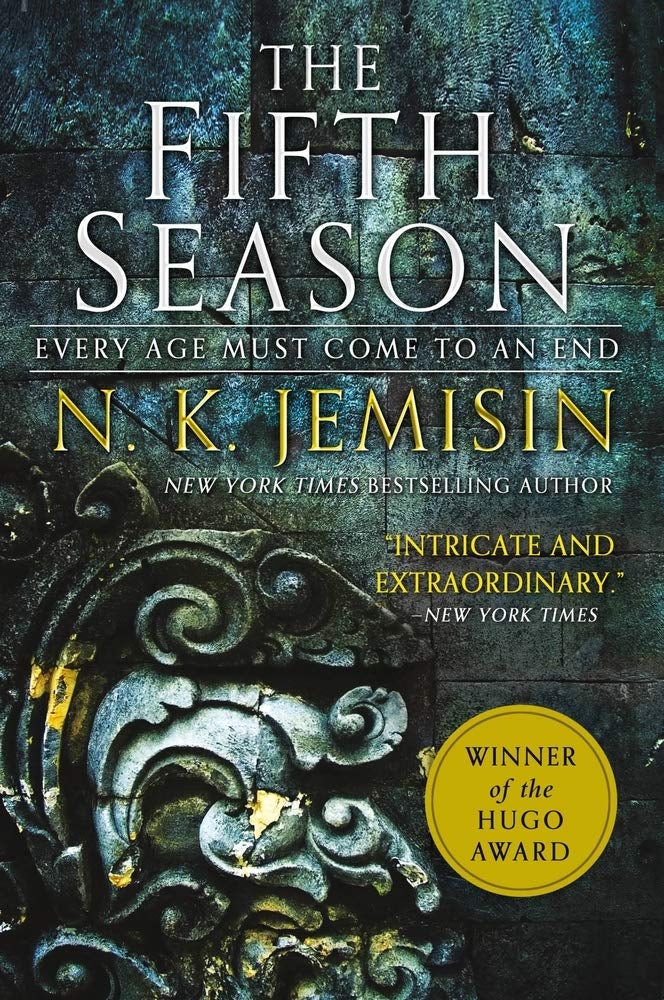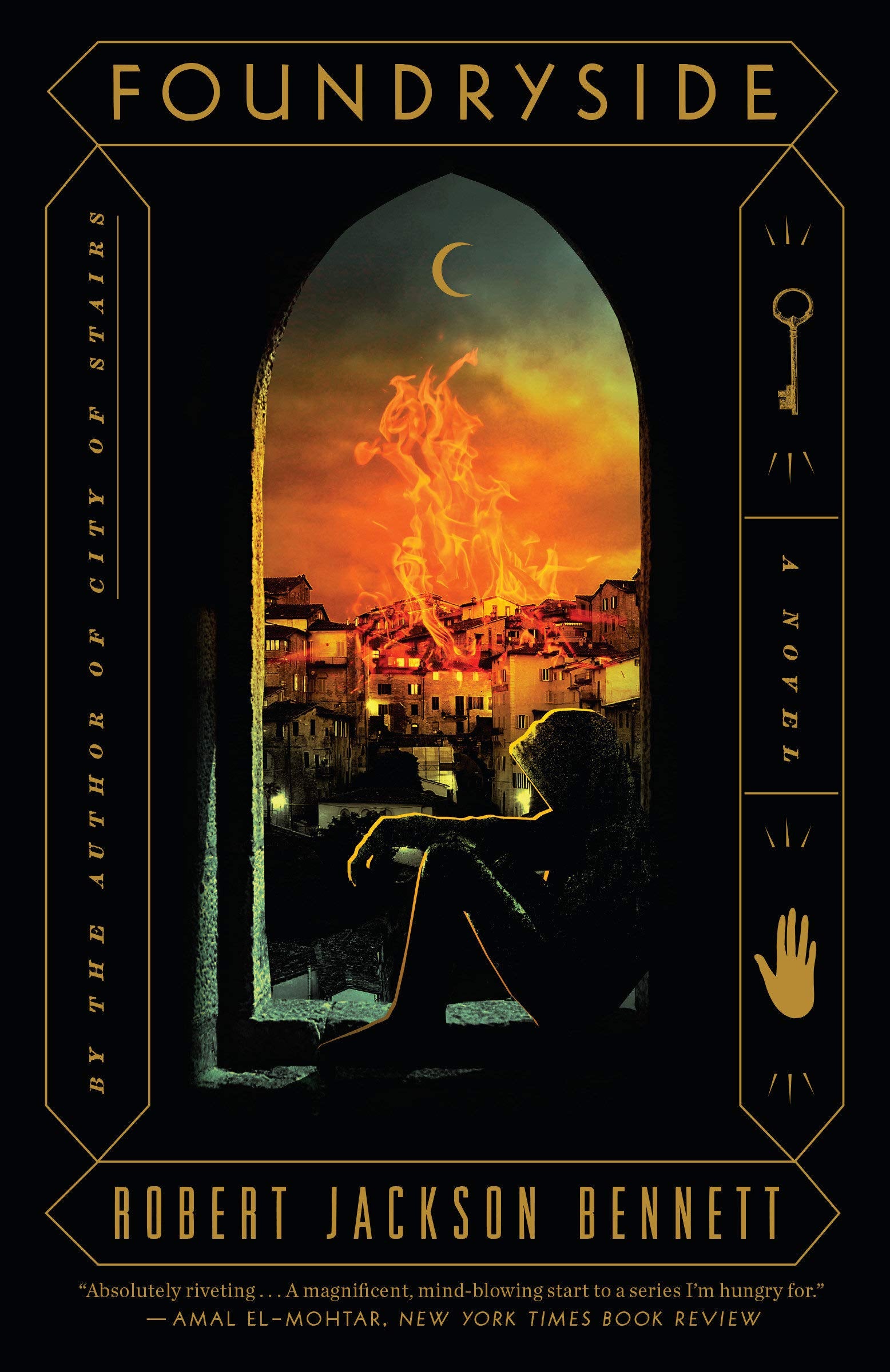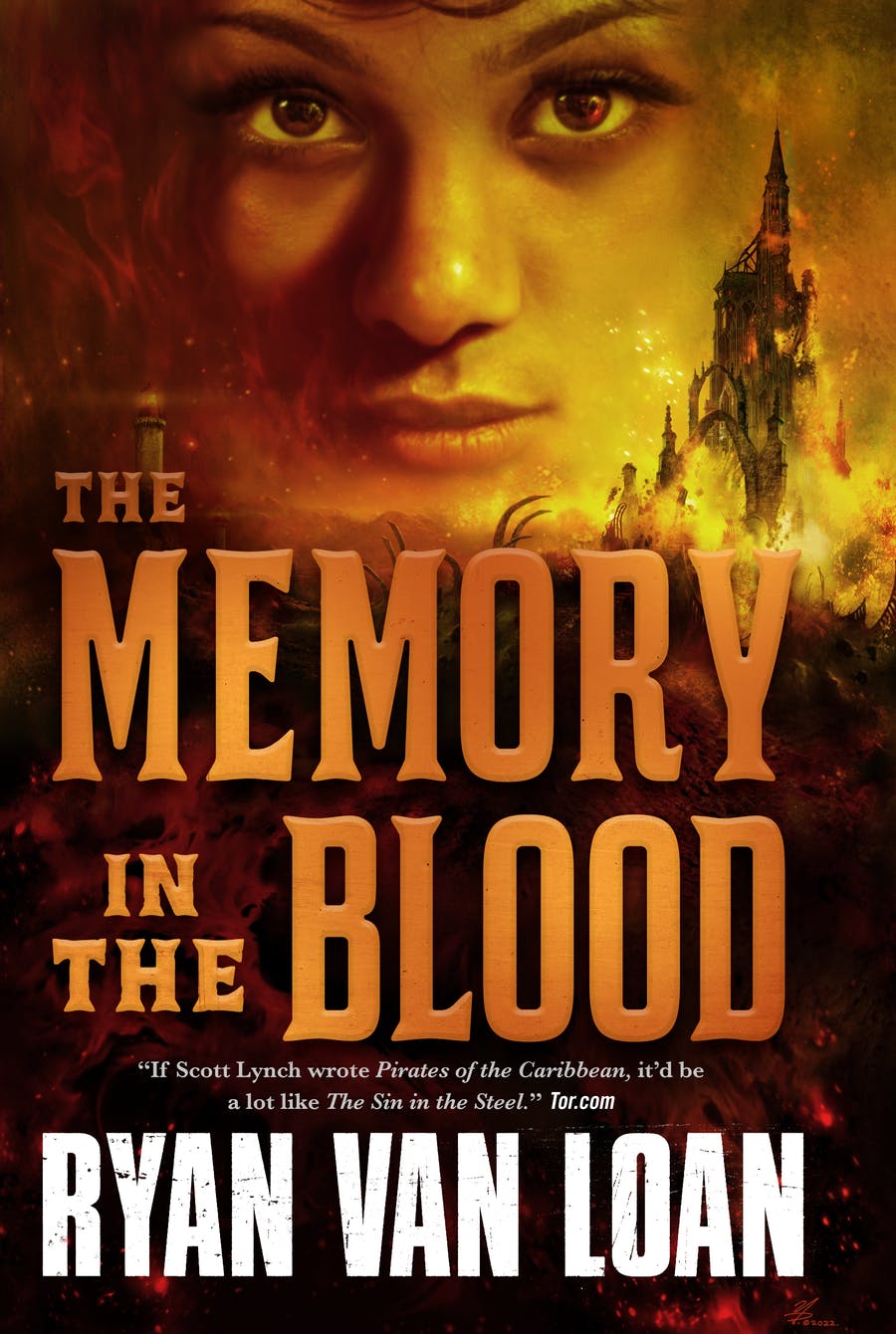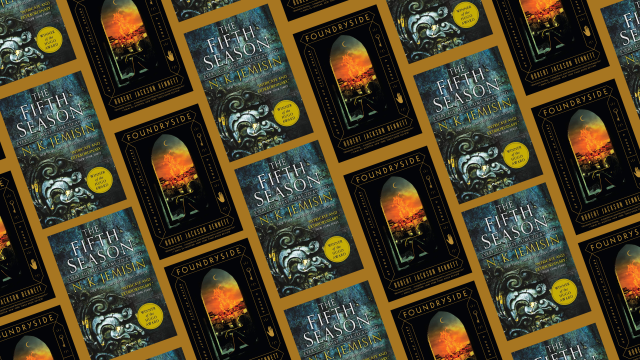Fantasy, especially secondary world fantasy, is a genre about imagination, creating new worlds with different views of everything from culture to economics to the limits of physics, and in many respects, presuming no limitations at all. In that imagining (to paraphrase Max Gladstone), it implies a critique, a perspective on our present reality.
All art is in conversation with its world. Fantasy is no exception and so it shouldn’t be a surprise that secondary world fantasy increasingly has something to say about our current economic model(s) and the power structures they prop up. Two recent(ish) works that have a whole heck of a lot to say in this arena are N.K. Jemisin’s The Broken Earth Series and Robert Jackson Bennet’s The Founders Trilogy. I want to focus on the opening novels in both series: The Fifth Season and Foundryside, respectively, because both tackle the nightmare that is late-stage (end-stage?) capitalism in unique ways from different directions.
In The Fifth Season, the world is torn asunder by cataclysmic climate change, the weather patterns so broken that they occasionally produce an impossibly long, harsh winter called the fifth season. Rocked by unpredictable seismic activity and climate, society turns to the mages in their world, called orogenes, to save them. Hated and feared for their magic — orogenes can control energy and through their powers, control (to a degree) the broken world around them — they are seen as a means to an end. We see firsthand how orogenes are used as little more than instruments of the will of the upper castes and the rest of the non-orogene population is similarly controlled through a series of caste structures and communities that ensure they remain disorganized, disenfranchised, and ever on the edge of losing everything they have through lack of resources, natural disasters, and violence.
An earlier emperor sums up the elite’s ruse well with the following: “Tell them they can be great someday, like us. Tell them they belong among us, no matter how we treat them. Tell them they must earn the respect which everyone else receives by default. Tell them there is a standard for acceptance; that standard is simply perfection. Kill those who scoff at those contradictions, and tell the rest that the dead deserved annihilation for their weakness and doubt. Then they’ll break themselves trying for what they’ll never achieve.”
N. K. Jemisin’s words are a literary gut punch about the power structures of modern society. Her words, spoken from the mouth of an imagined emperor from an imagined world, eerily reflect the lived reality of many in the BIPOC community, thrown into harsh relief across every screen in the country with the murder of George Floyd and the Black Lives Matter marches during the summer of 2020. In The Fifth Season there is no escape from a society that hates the very beings that allow for its continued existence.

N.K.’s protagonist, Syenite, an orogene herself, finds fleeting freedom from this oppressive culture on a remote island made up of like-minded castaways, but even their isolated enclave cannot be allowed to stand and soon the empire she ran from comes calling with ships and soldiers and the torch of war. Later, Syenite assumes a new identity in one of the small, scattered communities on the mainland and by hiding her magic, by hiding who she really is, manages to find some measure of peace. Until her children begin to display signs of orogeny and are murdered by their community.
Jemisin shapes a world that teaches harsh lessons about our own. Conform or be destroyed, hide your identity at all costs if you want to survive even as you die inside, and understand that true freedom can only be found in fleeting moments, if at all. It’s a bleak world that mirrors the experience of those historically targeted and marginalised in our society. But Jemisin doesn’t leave it there. Through much of The Fifth Season Syenite and the rotating cast of characters thrown in with her are merely trying to survive, to escape, but slowly they come to realise that the world — both physical and societal — cannot be escaped, it must be confronted and forced to recognise them as equals…or be torn asunder.
Robert Jackson Bennett’s Foundryside takes the many facets of unbridled capitalism, tech culture, and toxic bro culture and crams them into a single city: Tevanne. Here the magic is akin to programming, where complex sigils can be carved into objects to change their properties and shift the very physics of what is possible (think wheels that turn themselves, boulders that believe they’re light as air, and fortresses that believe they’re alive). Rather than use this magic to create a utopia, predictably, the few who discovered this magic instead used it to consolidate their own power.

Those outside the majestic enclaves of the corrupt elite live in miserable poverty and violence where none lift their heads to look out of the muck, because it’s all they can do to survive another day. We see this world through the eyes of a would-be thief and escaped slave, Sancia. Speaking of Tevanne’s power structure, she tells us that, “It makes you think you’re a thing, it makes you resign yourself to becoming a crude good. It makes things out of people so thoroughly they don’t even know that they’ve become things. Even after you’re free, you don’t even know how to be free! It changes your reality, and you don’t know how to change it back. It’s a system…a device…a machine.”
Looking at our gig economy, it’s not at all hard to see the parallels here. So often we’re told at work, on social media, in entertainment, that our utility defines our worth and it can be difficult to find the words to peel back the obfuscating layers of that “pull yourself up by your bootstraps” propaganda to see the truth: we’re living within a system, a machine. One that is often rigged against any who weren’t massively lucky: either through birth or through opportunity and fortune. When she steals an ancient artefact that allows her to rewrite reality itself, Sancia realises she has a chance to break this system, not only for herself, but for all of Tevanne. Doing so ignites a war that threatens to tear apart not only the system, but the very fabric of civilisation. Foundryside shows us that decisions come with costs and sometimes the highest price is doing nothing at all. Robert Jackson Bennett shows us through Sancia and her ragtag found family that, “Sometimes you need a little revolution to make a lot of good.”
The Fifth Season and Foundryside are the opening chapters into larger series about the struggle to overcome corrupt systems. They’re also about inventive magic systems that allow ordinary, everyday folks to rise above their lot in life and wildly imaginative cities and landscapes that suck us into their worlds. N.K. Jemisin and Robert Jackson Bennett aren’t at the forefront of the fantasy genre by accident, their books hit the reader in that sweet spot that fantasy can do so well: entertain while also allowing us to look into a mirror and see not only our world reflected, but new, imagined ways to fight back, to change our futures. To dream.

The Memory in the Blood is available now from Tor Books.
Want more Gizmodo news? Check out when to expect the latest Marvel and Star Wars releases, what’s next for the DC Universe on film and TV, and everything you need to know about House of the Dragon and Lord of the Rings: The Rings of Power.
